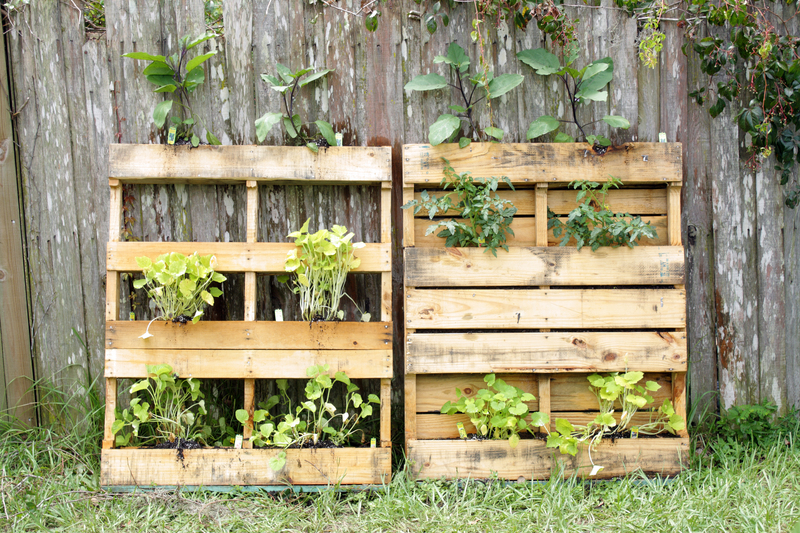Stretch Your Dollar When Decluttering Bulky Waste Items
Are you staring at old furniture, broken appliances, or a mountain of boxes, not sure what to do or how to dispose of them without breaking the bank? Decluttering can be a daunting task, especially when it comes to bulky waste items that seem almost impossible to remove without costly services. However, there are practical, affordable, and even profitable ways to handle large-scale decluttering.
In this guide, we'll share actionable strategies to stretch your dollar when dealing with bulky waste, ensuring you save money, minimize hassle, and possibly make a little cash on the side!

Understanding Bulky Waste and Why It's Costly
Bulky waste, also known as large-item waste, refers to objects that are too large for regular garbage collection -- think old mattresses, couches, wardrobes, refrigerators, and discarded electronics. Many municipalities charge extra fees for such pickups, and hiring private junk removal can quickly raise your expenses.
- Common bulky waste items: sofas, mattresses, appliances, large electronics, carpets, bikes, fitness equipment.
- Associated disposal costs: landfill charges, labor, transport, recycling fees, and sometimes penalties for improper disposal.
Why Proper Disposal Matters
Improper disposal of bulky waste can cause:
- Environmental damage (due to toxic materials)
- Legal fines
- Safety risks and community eyesores
Smart, eco-friendly disposal isn't just the right thing for the planet. It helps avoid fines, complications, and unnecessary costs!
Top Money-Saving Tips for Decluttering Bulky Items
1. Plan, Sort, and Prioritize
Start by sorting your bulky items into categories: what's reusable, what can be sold, what's recyclable, and what must be trashed. By doing this:
- You prevent paying for removals you don't need.
- You uncover items that could be valuable or useful to others.
Tip: Photograph items and make a list. This helps when researching disposal or selling options (and can even help with insurance claims).
2. Sell Before You Toss
Turn your clutter into cash! Many bulky items still hold value, even if you don't need them.
- Sell online: Use platforms like Facebook Marketplace, Craigslist, eBay, or local 'buy and sell' groups.
- Host a garage sale: Combine small and big items to attract more buyers.
- Target collectors and hobbyists: Old bikes, vintage furniture, or appliances for parts can be surprisingly valuable.
Bonus: By selling, you not only save on disposal fees, but earn extra money -- stretching your dollar effectively!
3. Donate and Claim Tax Deductions
Charities, shelters, and non-profits often accept donations of gently used bulky items. Some will even pick up items for free.
- Contact organizations like Goodwill, The Salvation Army, Habitat for Humanity ReStores, or local thrift shops.
- Request a receipt -- you may be able to claim the value as a tax deduction.
- Make sure items are clean, functional, and safe.
This method not only stretches your dollar but also gives back to the community!
4. Repurpose or Upcycle Bulky Waste
Before calling for bulk trash collection, consider if items can be creatively reused. Upcycling saves money you'd otherwise spend on new purchases:
- Turn old doors into a desk, bookcase, or headboard.
- Convert a broken dresser into shelving or garden planters.
- Use scrap metal, wood, or glass for DIY projects.
Stretch your dollar by slashing shopping costs and reducing waste at the same time.
5. Utilize Free or Low-Cost Bulk Pickup Services
Check with your municipality: Many cities and counties offer annual or quarterly free bulky waste pickups, especially for residents. Rules vary, so:
- Call your local public works or sanitation department.
- Check your city's website for schedules and qualifying items.
- Some areas offer vouchers or discounts for larger loads.
Plan your decluttering around these dates to minimize or eliminate disposal costs!
6. Share or Swap Bulky Items
Get creative by engaging with your community:
- Join "Buy Nothing" groups and neighborhood forums to offer items for free.
- Host a swap event -- neighbors and friends may be searching for exactly what you want to remove.
Stretch your dollar through sharing: you reduce disposal fees while helping someone else furnish their space.
7. Rent a Truck and Team Up
If you must haul bulky waste to a landfill or recycling center, save by splitting costs:
- Rent a truck for a day and gather neighbors, friends, or family also clearing clutter.
- Shared loads mean shared costs for fuel, mileage, and disposal.
- Some disposal sites charge by weight or volume -- joint loads can be more cost-effective.
This approach is not only cost-saving but fun and productive as a team-building activity!
8. Leverage Appliance Recycling and Buy-Back Programs
Some manufacturers, retailers, and utility companies offer incentives for returning old appliances and electronics:
- Trade-in programs may provide store credit, cash, or free removal.
- Energy companies often give rebates for turning in energy-hogging refrigerators or air conditioners.
- Some retailers pick up your old item when delivering a replacement -- ask before making a purchase.
Maximize your savings by exploring all available programs before arranging disposal.
Smart Strategies for Reducing Future Bulky Waste
Practice Mindful Purchasing
Ask yourself before acquiring large items:
- Do you really need it, or is there a smaller alternative?
- Is it built to last, or cheaply made and disposable?
Buy quality over quantity to reduce the cycle of replacement and disposal -- ultimately stretching your dollar further in the long-term.
Opt for Modular or Multi-Use Furniture
Modular items are easier to transport, disassemble, sell, or repurpose, minimizing difficult disposal scenarios down the road.
Coordinate with Building Management (for Apartments & Condos)
Many multi-family buildings offer regular bulk waste collection, or can recommend affordable, trusted removal services. Utilize these options instead of expensive one-off solutions.
Understanding Landfill, Donation & Recycling Centers
Landfill & Transfer Station Tips
- Check local fees -- some towns offer a set number of free bulky waste trips each year.
- Sort items (metal, wood, electronics) to possibly access lower rates or recycling incentives.
- Research operating hours and loading requirements to avoid unexpected charges or trips.
Locate Local Donation Centers
- Most accept furniture, appliances, and home goods -- ensure everything is in reasonable condition.
- Some offer free pickup, especially for large donations.
Donation reduces landfill volume and supports good causes -- a true win-win for your wallet and the community!
Find Certified E-Waste and Appliance Recyclers
- Electronics and appliances often contain hazardous materials -- legal penalties may apply for tossing them in regular waste.
- Certified recyclers ensure safe, eco-friendly processing, and may even pay for certain items.
How to Avoid Common Mistakes (and Hidden Costs)
- Don't procrastinate: Last-minute removal can force you to accept costly or shady deals.
- Avoid illegal dumping: Fines can run into the thousands -- always dispose of bulky waste responsibly!
- Compare prices: If you must hire a removal service, get multiple quotes and confirm what's included.
- Understand landfill bans: Many landfills reject electronics, tires, mattresses, or hazardous items -- and fees apply for non-compliance.
If in doubt, call your local waste authority for clarification. Knowledge is power -- and savings!
Bulky Waste Decluttering: Real-Life Case Study
Turning a Cost Center into a Cash Opportunity
Meet Jane: She downsized from a house to an apartment and faced a daunting living room set, two old TVs, broken exercise equipment, and boxes of household wares. Her first instinct was to call a junk removal service -- the quote: $500!
- She sold the sofa, TV stand, and one TV online for $120.
- Donated usable items to a local shelter for a $100 tax deduction.
- Used her apartment's free annual bulk pickup for the rest -- cost: $0.
Final tally: Not only did Jane save the original $500, she earned $120, gained a tax deduction, and needed just a morning of effort!

Quick Reference: Bulky Waste Decluttering Checklist
- Step 1: Sort and photograph all large items.
- Step 2: Research local disposal and pickup policies.
- Step 3: List usable items for sale or donation.
- Step 4: Repurpose or upcycle what you can.
- Step 5: Plan for free or low-cost pickup and recycling for the rest.
The Bottom Line: Declutter Smarter, Stretch Your Dollar Further
Decluttering large household items can feel overwhelming, but with smart planning and resourcefulness, it doesn't have to be expensive. By embracing selling, donating, repurposing, and researching cost-effective disposal options, you can declutter your space and stretch your dollar further than ever before.
So next time you face a mountain of bulky waste, remember: a little time and creativity can lead to big savings, less waste, and a more beautiful, organized home. Happy decluttering!
